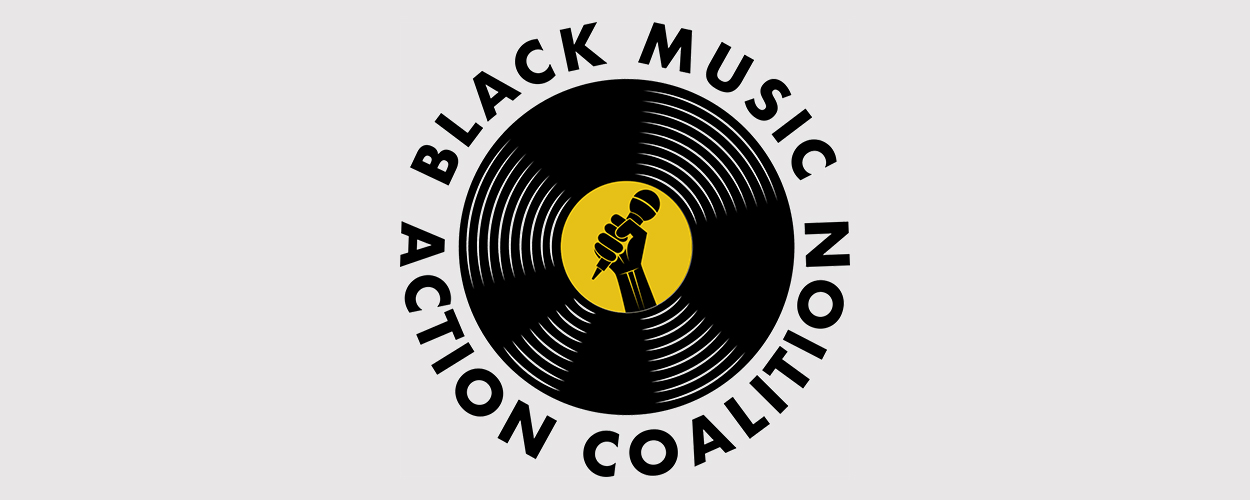This website uses cookies so that we can provide you with the best user experience possible. Cookie information is stored in your browser and performs functions such as recognising you when you return to our website and helping our team to understand which sections of the website you find most interesting and useful.
Artist News Business News Industry People
US execs form Black Music Action Coalition
By Chris Cooke | Published on Tuesday 23 June 2020

A coalition of artists and music industry executives has come together in the US to demand action is taken to deal with “long-standing racial inequities in the business”.
The Black Music Action Coalition wants music and streaming companies to make tangible commitments to address inequities within their own organisations. It also wants to involve the Coalition’s members in deciding how to spend the funds that have been set up by various music firms in recent weeks to tackle prejudice and injustice, both within and beyond the music industry.
Like the Black Music Coalition established in the UK earlier this month, the US-focused Black Music Action Coalition has been formed following the recent Black Out Tuesday and #TheShowMustBePaused campaigns. Which were, in turn, a response to the controversial death of George Floyd in Minneapolis and the resulting Black Lives Matter protests across the world.
Among a long list of artists backing the new coalition are Travis Scott, Post Malone, Mary J Blige, Sean ‘Diddy’ Combs, Lil Nas X, Khalid, Cardi B, Earth Wind & Fire, Lady Gaga, Billie Eilish, Missy Elliott and Miley Cyrus. Quincy Jones leads a committee of advisors, while eight music industry execs are listed as board members on the Coalition’s website, with many more – especially from the world of artist management – also officially supporting the initiative.
In an open letter to the music industry, the new Coalition states: “We created BMAC to address long-standing racial inequities in the business, the financial impact of those inequities for both black artists and executives, and ways we can work with you urgently to solve these problems”.
“Additionally, BMAC will support groups and programmes committed to progressing the equality of black lives around the country. We are encouraged by recent efforts by Universal Music Group, Warner Music Group, Sony Music, Apple, YouTube, BMG and other industry participants. However, we know that more needs to be done and we must do it together”.
It goes on: “Our highest priority at this moment is to meet with each company’s CEO, senior management and your newly formed foundation boards to mutually develop a plan to address the deeply rooted systemic racism in our industry”.
“This plan must include a review that specifically examines: inequities in the treatment of black artists; the recruitment, advancement and salary parity of black executives; and a general analysis of how your company will make things right by black artists, executives and the greater community”.
“In addition”, it then adds, “we would like to meet with you to ensure that we have a voice in determining how funds designated by your company to fight racism are allocated. Having a voice in the earmarking and distribution of the funds is essential because so few companies in the music industry are run by black people”.
“It is essential that the funds are used to benefit the black community that the music industry has relied upon for so much of its success – a community that has been battered by generations of systemic racism, the COVID-19 pandemic and recent violence and destruction emerging in reaction to continued police brutality in the United States”.
“It is essential that the funds are used to ensure that the music industry is focused on eradicating racial inequality in each company that sees profits as a result of black culture”.
The letter concludes: “We must work together to put a plan for change in place with you within the next 30 days. BMAC intends to hold you accountable, and will keep track of the music industry’s efforts to clean up its own house. There is a lot of work for us to do, and we look forward to doing it together”.
A similar open letter from the UK’s Black Music Coalition made five specific demands of music companies here, including mandatory anti-racism and unconscious bias training, career support for black staff and consultants, commitments to fund external initiatives that seek to tackle racism, and an end to the use of the term ‘urban music’.





